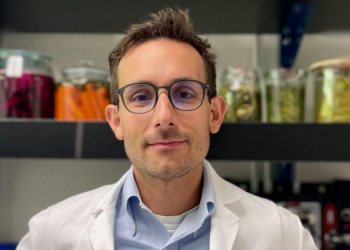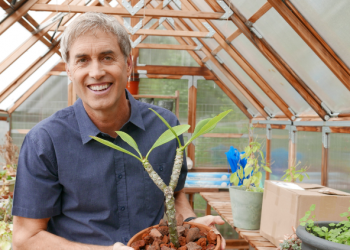Optimism as a Means to a Longer Life
By Jonanne Talebloo

This blog is part of our Gratitude & Reflection newsletter. If you like this content, sign up to receive our monthly newsletter!
We have all heard the saying “mind over matter” when it comes to athletics and physical challenges. But can this saying be applied to health, healing, aging, and longevity? Studies suggest that optimism may play a leading role in improving not only one’s emotional well-being but also physical health and increasing lifespan.
Optimism, defined as the tendency to be hopeful and expect positive outcomes, has been linked to improved mental health and well-being in that it uplifts one’s mood and outlook on life. Optimism alone may not be the silver bullet for health and happiness, but studies show that it is one of many factors that can positively influence health, longevity, and lifespan.
For example, research shows that optimism helps diminish stress and anxiety, which lowers the stress hormone cortisol. Elevated levels of cortisol and blood pressure have been linked to an increased risk of stroke, hypertension and heart attack. Chronic stress can have negative effects on almost all of our bodily systems, including the endocrine system, where stress can impair communication between the immune system and the hypothalamic-pituitary-adrenal (HPA) axis, and potentially lead to immune disorders.
Optimism also assists with healing. Akivah Northern is part of the Stanford Lifestyle Medicine Gratitude and Reflection Pillar and earning her doctoral degree in Religion and Health at Loma Linda University. She is a chaplain, which are professionals who listen and accompany patients and their families in life-threatening, physical, existential, moral, or spiritual distress. Northern is the founder of a soon-to-open healthcare center that incorporates lifestyle medicine, chaplaincy intervention, and the arts.
“Optimism is not just helpful, it is vital for those who are suffering,” says Northern. “As a chaplain, I engaged patients in optimism and hope, instilled a sense of the sacred, and offered explorations regarding ultimate meanings. These conversations served as calming, hope-filled, and relieving medicine for patients.”
Optimism and Longevity
Recent studies have explored the connection between optimism and longevity and how a person with a positive outlook has the potential to live a longer, healthier life. A recent study revealed that optimism (defined as “the global expectation that things will turn out well in the future” and measured by cortisol stress reactivity and questionnaires) was linked to decreased cortisol levels, which is an important factor regarding increased longevity. Another study found that higher levels of optimism (assessed using the Revised Optimism-Pessimism Scale) were linked to increasing lifespan by as much as 15 percent.
In a review article examining a variety of health and longevity benefits associated with optimism, researchers found a whole host of benefits. Highlights from the review were that greater optimism predicted greater career success, better social relations, and better health. The article also concluded that the positive effects of optimism appeared to reflect individuals with a greater engagement in pursuit of desired goals. Another large-scale study showed that the link between optimism and increased longevity was independent of ethnic origin and applied across many racial and ethnic groups.
In order to understand how optimism can make such dramatic impacts on our health and longevity, the neural underpinnings of optimism have also been studied. Research suggests optimism activates areas of the brain involved in mood regulation, attention allocation, emotional expression, language processing, and perception of oneself. Modulating these areas with our thoughts may improve psychological well-being by improving one’s perception of the world, themselves, and self-expression.
“Optimism is the opposite of stress, worry and anxiety, which can increase inflammation and chronic illness in the body,” says Northern. “By leaning toward a calming and optimistic way of being, we are increasing not only our mental, emotional, and spiritual well-being, but also our physical health and longevity.”
Optimism can be Cultivated
Although optimism is defined as a trait ingrained in individuals, people can learn to develop optimism over time. Learned optimism can be cultivated through music, gatherings, and culture in community. This sense of community strengthened by optimism can promote individual well-being, contribute to advancements in public health, and even inspire social change on a global scale.
An example of cultivated optimism through culture and community is the fact that millions of Iranian women worldwide have learned to adopt an optimistic attitude in their fight for freedom and equality. Research also shows that optimism improves resilience, another essential characteristic for Iranian women. Optimism and resilience among the Iranian diaspora have been the foundation of a global community that continues to inspire change regarding women’s rights.
Optimism can also be developed at the individual level by working with internal thoughts, such as breaking pessimistic thought patterns or cultivating the experience of gratitude by keeping a gratitude journal. Another way to work towards adopting an optimistic mindset is by challenging and re-writing negative self-talk. For example, this can mean changing phrases such as “I will never be able to do this.” to “This is a challenge I look forward to working towards overcoming.” Furthermore, one study notably found that optimism can be increased through a very simple intervention in which individuals imagined their best possible self for five minutes each day.
“Our internal dialogue is everything. What we tell ourselves, the language we use on the inside will come out on the outside,” says Northern. “So, we need to be intentional about being optimistic, generous, and forgiving—this will make such a difference not only for those around us, but for our own health and healing.”






















